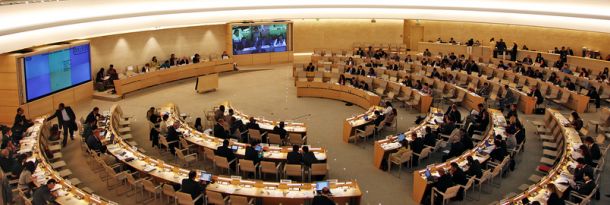
Illustration: Moroccan government's oil exploration programme in Western Sahara continues despite UN legal opinion from 2002.
In a well-put op-ed in New York Times on 30 June 2010, Nicholas D. Kristof, criticizes the continued Israeli occupation of Palestinian territories.
He adds: ”It’s fair to acknowledge that there are double standards in the Middle East, with particular scrutiny on Israeli abuses. After all, the biggest theft of Arab land in the Middle East has nothing to do with Palestinians: It is Morocco’s robbery of the resource-rich Western Sahara from the people who live there”
This made the Moroccan ambassador protest to the newspaper – and revealed its government’s invention of history and facts on the ground. In a reply to the newspaper, the ambassador claimed that the territory has historically been part of Morocco and “was recovered from Spain, the former colonial power, as a result of the Madrid Agreement in 1975”.
The ambassador claimed that “Morocco has made tremendous investments in the region, which is not ‘resource-rich’ and whose inhabitants would otherwise lack what they need for basic sustainability. The government has invested more than $4 billion since 1976, while hardly anything has been generated as a result of the use of the resources of the region”.
But all of this is incorrect. The territory of Western Sahara is not part of Morocco, and has never been. Western Sahara is still considered by the United Nations to be the last unresolved colonial territory of Africa.
The International Court of Justice, in its Western Sahara Advisory Opinion of 1975, concluded that it could not establish any ties of territorial sovereignty between Western Sahara and the Kingdom of Morocco. Therefore the Court found the “principle of self-determination through the free and genuine expression of the will of the peoples of the territory” to be applicable. (ICJ Report, 1975, p.68, §162). The consequent Moroccan occupation was condemned by the UN, and no states have recognized the Moroccan claims.
Since Western Sahara is still on the UN List of colonies – or so-called Non-Self Governing Territories - specific rules apply to the natural resource activities in the territory. As established with great clarity by the UN Legal Counsel in 2002: ‘…if further exploration and exploitation activities were to proceed in disregard of the wishes and interests of the people of Western Sahara, they would be in violation of the principles of international law applicable to mineral resource activities in Non-Self-Governing Territories.’ (UN Legal Opinion, S/2002/161, § 25)
That same UN Legal Opinion reiterates the invalidity of the 1975 Madrid Agreement, which the Moroccan Ambassador refers to for supporting the Moroccan take-over. The Legal Opinion stated that the right over the land and resources is for the Saharawi to decide - not the Moroccan government.
Western Sahara Resource Watch has thoroughly documented how Morocco is earning billions of dollars annually on its natural resource plunder of Western Sahara, while the local people of the territory get nothing. The Moroccan ambassador stated to NYT that its government has invested 4 billion dollars in the territory. If that is correct, it equals in fact the income that the government has got from the phosphate exports from the territory only for the last half decade. When the phosphate prizes peaked at close to 500 dollars per tonne in 2008, the production at the phosphate mine in Bou Craa in Western Sahara was close to 4 million tonnes. The Moroccan government probably knows how to multiply these two figures themselves.
Due to the central role that the resources play in the conflict today, our organization has suggested that the Security Council establish a mechanism to place the proceeds of the exploitation of Western Sahara’s natural resources under international administration until the status of the territory has been resolved. This has been done with other occupied and colonial territories in the past.
If the Moroccan government is adamant that Western Sahara cannot be labelled “resource-rich”, as the ambassador now interestingly claims, we expect Morocco should have no problem in accepting such a mechanism.
WSRW calls on addressing plunder
WSRW calls on UN Member States to address Morocco's plunder of Western Sahara during Morocco's UPR review in November.
WSRW calls upon UN to halt the plundering
In its statement to the United Nations’ Special Political and Decolonization Committee (Fourth Committee), Western Sahara Resource Watch called for the establishment of a mechanism to place the proceeds from the exploitation of Western Sahara’s natural resources under international administration until the conflict has been resolved, and for the inclusion of a human rights component into the MINURSO mandate.
States urge Spain to respect Saharawi rights in Human Rights Council
Namibia and East-Timor have today recommended Spain to respect the Saharawi people's right to free, prior and informed consent with regard to the exploitation of Western Sahara's natural resources.
WSRW calls on UN Members to question Spain on Western Sahara at UPR
Next month, Spain’s human rights track record will be reviewed by the UN Human Rights Council in Geneva. WSRW asks UN Member States to raise the rights of the people of Western Sahara, for whom Spain continues to bear responsibility.


